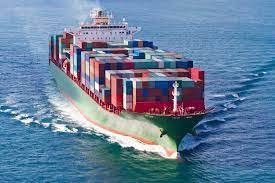According to the World Economic Forum, companies’ carbon footprints can be largely attributed to CO2 emissions in their supply chains, also known as ‘Scope 3 emissions’. In fact, up to 90% of a company’s carbon footprint can come from these emissions, and more than half of all emissions worldwide can be traced back to just a few supply chains. The challenge lies in tracking and reducing these emissions, as it’s difficult to improve something that you can’t measure.
The Climate Choice, a startup based in Berlin, has recently raised $2 million to help companies tackle their supply chain emissions and reduce their carbon footprint. Yasha Tarani, the CEO and co-founder experienced this problem firsthand when trying to reduce the climate impact of his previous company, Resmio, by sourcing products from environmentally friendly suppliers.
After witnessing the devastating effects of climate change during a sabbatical, which included experiencing 122-degree temperatures in Delhi, floods in Thailand that destroyed his hut, and bushfires in New Zealand, Tarani decided to dedicate his life’s work to reversing the degradation of the planet. Climate Choice’s goal is to make it easier for companies to track and reduce their supply chain emissions, ultimately helping to combat climate change.
Yasha Tarani, CEO and Co-Founder of The Climate Choice, knows firsthand how difficult it can be for companies to reduce their carbon footprint. He teamed up with Lara Obst, who leads the EU’s top climate innovation program, and data scientist Dr. Rey Farhan, to focus on decarbonizing corporate supply chains.
Their efforts have paid off, as they recently closed a $2 million funding round led by Gutter Capital. With new regulations coming into effect, The Climate Choice is poised to help companies tackle their Scope 3 emissions – or carbon emissions in their supply chains. The company’s platform makes it easier for companies to collect and analyze emissions data from suppliers, and take action to reduce their carbon footprint.
Several companies, including O2 Telefonica and HiPP, have already seen success with the platform. And The Climate Choice is monitoring thousands of suppliers to help more companies decarbonize their supply chains.
Tarani said,
Our mission is to empower every company to be a climate champion,” Ten years from now, our platform will automate supplier engagement for the world’s largest companies, and all companies will have access to real-time supplier data to empower informed decision-making.
According to The Climate Choice, they’re not just another carbon accounting platform. The company takes a different approach altogether.
Conventional carbon accounting practices depend on averages and assumptions to estimate supplier emissions. This method is helpful to get a general idea of a carbon footprint and identify hotspots. However, since all suppliers within a category look the same, it’s useless for making decisions to decarbonize,” Tarani clarifies. “TCC goes beyond the usual carbon accounting practices. Our platform automates supplier outreach and generates actual primary data profiles on supplier emissions and practices. These supplier profiles are shared within our network so that companies don’t need to duplicate work. Equipped with comprehensive supplier data, companies can compare suppliers and make informed procurement decisions to decarbonize their supply chain.


